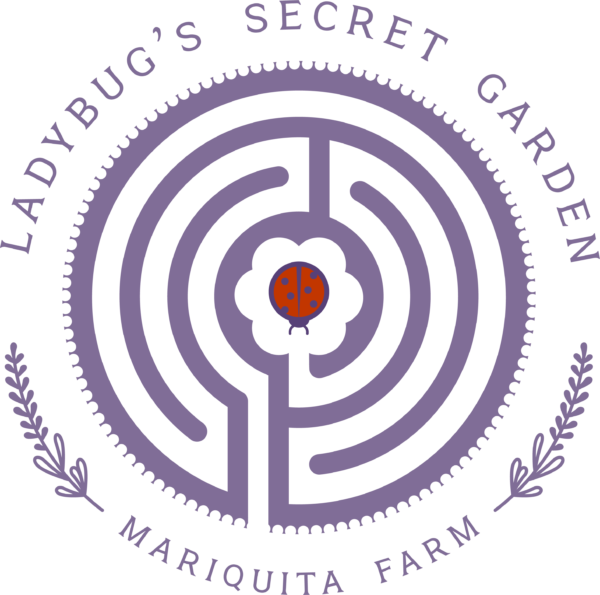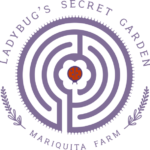Field II: The Sequel
 I’m enjoying the company of my new dog, Red. I didn’t expect to. I’ve worked on ranches where dogs were kept since I was a kid, but I never had a dog of my own. I never wanted a dog. I’ve always been more of a cat person.
I’m enjoying the company of my new dog, Red. I didn’t expect to. I’ve worked on ranches where dogs were kept since I was a kid, but I never had a dog of my own. I never wanted a dog. I’ve always been more of a cat person.
Julia and I got Red to protect our sheep. Livestock guard dogs are different than herd dogs. Sheep dogs and cow dogs help herdsmen move herds, running back and forth behind laggard animals, barking, nipping, and urging them on. Herd dogs bond with human herd owners and learn to follow explicit directions. Guard dogs, by contrast, bond with the herds they guard. A livestock guard dog may lie on the ground like a sack of cement mix all day long, but when the need arises, it’ll rise up too and frighten off or attack any predators that threaten its friends. It is necessary that a guard dog’s owner be able to approach and handle the dog, but it is not the guard dog’s job to be friendly to humans. For a livestock owner, being overly familiar with a guard dog can even be counterproductive, since the dog will be tempted to switch loyalties to humankind and forget its herd. But I knew all this.
Red spent the first two years of her life in the Texas Hill country, guarding ducks. The duck owner grew old and no longer able to care for his farm. Via the internet, Julia learned that Red needed to find a new ranch home, and so did a Pyrnees pup named Blue. We have friends in Texas, Frank and Pamela Arnosky, who are innovative organic flower farmers. So Julia decided to take a road trip, visit the Arnoskys, and come home with the two dogs. Maybe Red could have developed into a good guard dog for our sheep if she hadn’t spent a thousand miles in a car with Julia, eating at roadside taco joints, listening to music on the cd player and bonding like Thelma and Louise. But by the time Red got to our ranch in Watsonville she had new mission in life. Forget ducks! Pyrenees hound-dog girls are on this earth to vigorously protect deserving farm wives!
Even if Red had been flown to our farm sealed in an oil drum it might not have mattered much. My sheep are a sprawling, brawling bunch of hard headed, hard hitting ewes, more like a girl gang in the Bronx or a dirty roller derby team than the sort of fluffy white creatures that Little Bo Peep might hang out with. When I first introduced Red to my sheep, Wuzzy, the boss ewe, was unequivocal. She opened her mouth and stuck out her big, black tongue. “Get lost, bitch!” she baa-ed. Then she came after Red like a hammer head shark looking for a nail. Red jumped into my arms and I staggered out of the corral under her weight. Back in the yard, Red practiced sneaking over, under, and through the boundary fences to make a mess on our neighbor Shirley’s lawn. I had to tie Red up. When night fell, she commenced to bark.
“Woof, woof!” she barked. “Red alert to Julia! A vicious deer approaches the south-west border of your ranch!” “Woof, woof, woof!”
“Quiet down!” I yelled.
“Woof, woof,” Red barked again. “There’s a bat in the sky at twelve o’clock high!” “Woof, woof, woof!” “ I’m gonna give it a piece of my mind!” “Woof, snarl!”
I couldn’t take it. “SHUT THE &*#! UP!”
But she wouldn’t. So I put Red in my van, which doesn’t have any seats in the back, and hoped she’d quiet down. Red looked wounded so I tried to make the floor a little softer by going to the barn and getting a saddle blanket that smells richly of donkey and spreading it out for her to sleep on. Then I got her a bowl of water and some chow.
In the morning Red was so happy she didn’t want to get out of the van, opting instead for breakfast in bed. I dragged her out and prepared to head off to the field. I have better things to do than ride herd on a guard dog, and I figured Red could stay home and keep an eye on Julia. But when I tried to drive away in “her new van” Red looked heartsick. So I took her to the farm with me where she met the guys, and enjoyed strolling the grounds, guarding the kales, radishes and squash. Now I have to take her with me everywhere I go.
I drive to our vegetable farm everyday down Highway 129. The other morning Red was fussing, so I pulled off the road in between the railroad overpass and the Pajaro River Bridge at Old Chittenden Road. Years ago, I used to farm a remote thirty acre piece along the railroad tracks near here, just up the river. I walked Red up the dirt road that serves as an access route for the Union Pacific maintenance crews along the railroad tracks so she could pee. My old partner, Greg, and I used to drive this road a dozen times a day going back and forth to the field, but since we split up our company and abandoned the field the road has grown over. Red didn’t want to stop, so we kept on walking. I hadn’t been down this road in nine years. Willow branches hung to the ground. Nettles reached up over my head. Red stopped to sniff a dead raccoon, and I was reminded of Ramiro.
When Greg and I first started farming out here the field was wild. Ramiro was our tractor driver and he helped us to break down the brush and rip the ground. For some reason the other guys called him “El Mapache,” which means “The Raccoon.” Ramiro and I were living together at the time, and one day he came home and said that he and Jorge had killed a javelí out at the field”.
I was alarmed. Javelí, or javelinas, are peccaries; small, omnivorous, pig-like animals that range over the Americas from the Gran Chaco in Bolivia, all the way to Arizona and Texas. I knew we didn’t have peccaries here in the Pajaro Valley, but Ramiro could easily have encountered a young wild boar, and that would be bad news. Since the field was isolated, our crops were vulnerable to being destroyed by herds of wild swine. Where there’s one pig, there’s always another.
“¿Mataste un puerco salvaje?” I asked. “You killed a wild pig?”
“No,” he said. “Un javelí.”
“But we don’t have javelinas here,” I said.
“Not any more,” he said. “We ate it.”
“En serio!” I said. “We don’t have javelinas here. They live in the desert. We have wild pigs. I mean, I’m hoping we don’t, but maybe you’re telling me we do.”
“It was no pig,” Ramiro said. “If you don’t believe me, I’ll bring you the feet!”
And so he did; four badger paws! Ramiro was a great guy, and not a bad cook, but he was no zoologist.
“We’re organic, Amigo!” I protested. “We can’t kill badgers. They’re our friends. They eat gophers like popcorn!”
“Ok, maguey!” Ramiro said. “No problem.”
Red was done smelling the dead coon and ready to move on. The last time I saw Ramiro he was taking his family back to Jalisco because he didn’t want to put his daughters in danger in Watsonville’s gang-plagued public schools. I heard he bought a ranch in Jalisco and raises milk goats. Red and I walked on.
We came to the field. Coyote brush stood ten feet tall. Red sat next to me as I surveyed the scene. I remembered a crop of chile peppers we raised out here. They were an aji type, a South American variety of pepper, red-orange, pointed, and hot as hell. Greg and I had the only seed in the US, as far as we knew. The plants grew and grew, but they didn’t flower until the end of the season, and then the plants got killed by frost before the fruit ripened. So we grew them again the following year. We were hard headed. We lost money twice before we understood that in vegetable farming it’s just as important to grow varieties of plants that are adapted to local conditions as to exploit openings in a national market. It wasn’t bad luck that the aji always froze; it was science! The breed of aji we were trying to grow had evolved at a different latitude and only flowers in the north when the hours of sunlight per day approximate springtime conditions back home. Nowadays I focus on conforming to my environment, not challenging it.
Red and I walked towards the middle of the field. The hemlock was so high we’d only gone a hundred yards before I couldn’t see the railroad tracks anymore. Wild rose and blackberry brambles tore at my pants. Red got tangled and we stopped. One morning when my son, Graydon, was little, I’d been out someplace right around here, working alone, picking carrots. He was with me that day, and he got bored.
“I wanna dwink,” he complained.
“Go get some water,” I said. “There’s a cooler next to the pick-up truck.” But the pick-up was at the end of the row, twenty yards off.
“I’m too tieowd!” he said. He sat down with a sigh like a dying bagpipe. Just then a train whistle sounded off in the distance. He straightened.
 “You hear that?” I asked. We could hear the big diesel engines throbbing to the north. He stood up. Then another whistle sounded, sharp and clear, and a locomotive came around the bend on the north-eastern side of the field. “That’ll be the Coast Starlight,” I told Graydon. “Seattle to LA. Next stop Salinas, 11AM. And it’s not an hour early, either. More like twenty-three hours late!” But by then Graydon was already gone. The poor, tired child, too exhausted and thirsty to stagger to the cooler for a mouthful of life-saving water, was racing down the row, dodging clods and piles of freshly harvested carrots. When he got to the access road at the center of the field he turned and ran towards the train like his life depended on it.
“You hear that?” I asked. We could hear the big diesel engines throbbing to the north. He stood up. Then another whistle sounded, sharp and clear, and a locomotive came around the bend on the north-eastern side of the field. “That’ll be the Coast Starlight,” I told Graydon. “Seattle to LA. Next stop Salinas, 11AM. And it’s not an hour early, either. More like twenty-three hours late!” But by then Graydon was already gone. The poor, tired child, too exhausted and thirsty to stagger to the cooler for a mouthful of life-saving water, was racing down the row, dodging clods and piles of freshly harvested carrots. When he got to the access road at the center of the field he turned and ran towards the train like his life depended on it.
“You ready to go, girl?” Red had finally peed. I picked up her leash. Graydon’s legs were so short back then that the speed he could move at was something to marvel over. He made it to the train tracks that day before the last passenger car had rolled past the field. These days Graydon’s feet are huge; bigger than mine. He’s thirteen. It’s time that moves fast now. It seems harder and harder to absorb or appreciate all the things that are going on. “When I get home,” I thought, “I’d better hug that kid while I still can.”
Red tugged hard. I’m no scatologist, but the fur-packed excrement she was straining to sniff at looked like bobcat shit to me. Red’s a good dog, even if she’s worthless at guarding sheep. I looked around. The sun was warm on my back. The sky overhead was as blue as a field of lupines and the grass on the hills beyond the railroad tracks was gold. It was time to get moving. I’d enjoyed playing hooky from my farm and taking a stroll down memory lane. It’s funny how it can take a turd-sniffing dog to help a man stop and smell the roses.
copyright 2008 Andy Griffin
top photo is of the CSY Field, taken July 2008 with Red’s help.
bottom photo is the same CSY Field, taken about 1998, complete with the train!
The Field Part Pt 1 Andy’s first article about the field…
0 thoughts on “Field II: The Sequel”
Leave a Reply
You must be logged in to post a comment.



Would love to see a picture of your dog, Red.
please???
Photo of my dog Red, thanks Linda for pointing that out!
Andy
https://www.mariquita.com/images/photogallery/redinfield.jpg
Andy, you’re a wonderful writer. If you’re half as good at farming, you must be very happy.
Your photo begs the question: why is Red named Red?
you asked “why is Red named Red?”
Her original Texan owner called her “Red Moon”. But she mostly responded to Red. So we call her “Red” or “Red Dog”. Her counterpart was a nameless happy 4 month old boy puppy: we call him “Blue Dog”. We’re so busy farming we didn’t have time to be very original! 🙂
signed, Julia using Andy’s account.